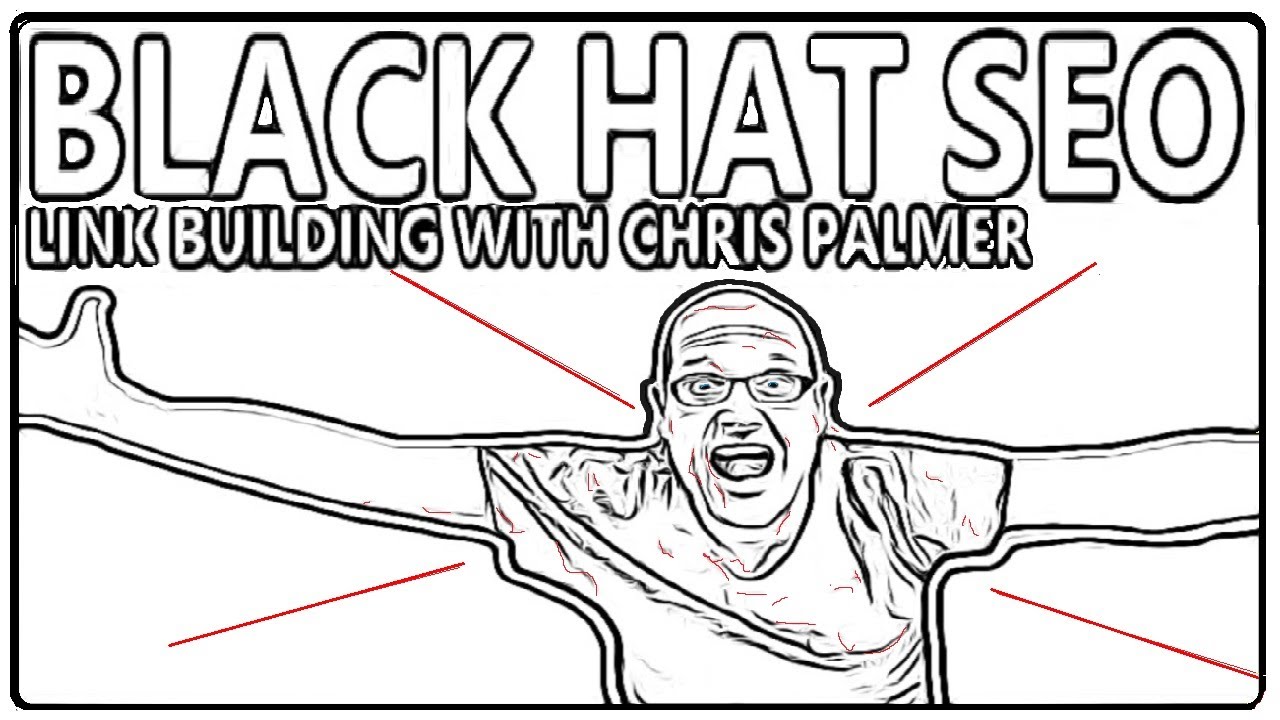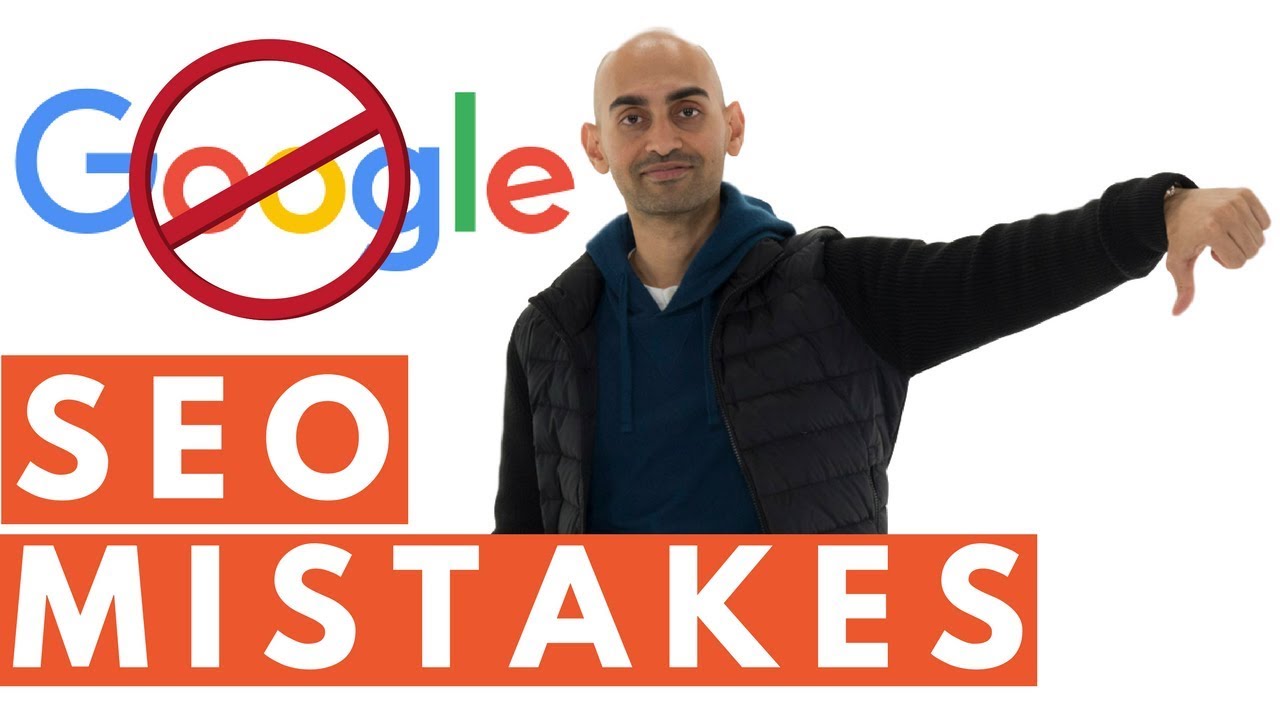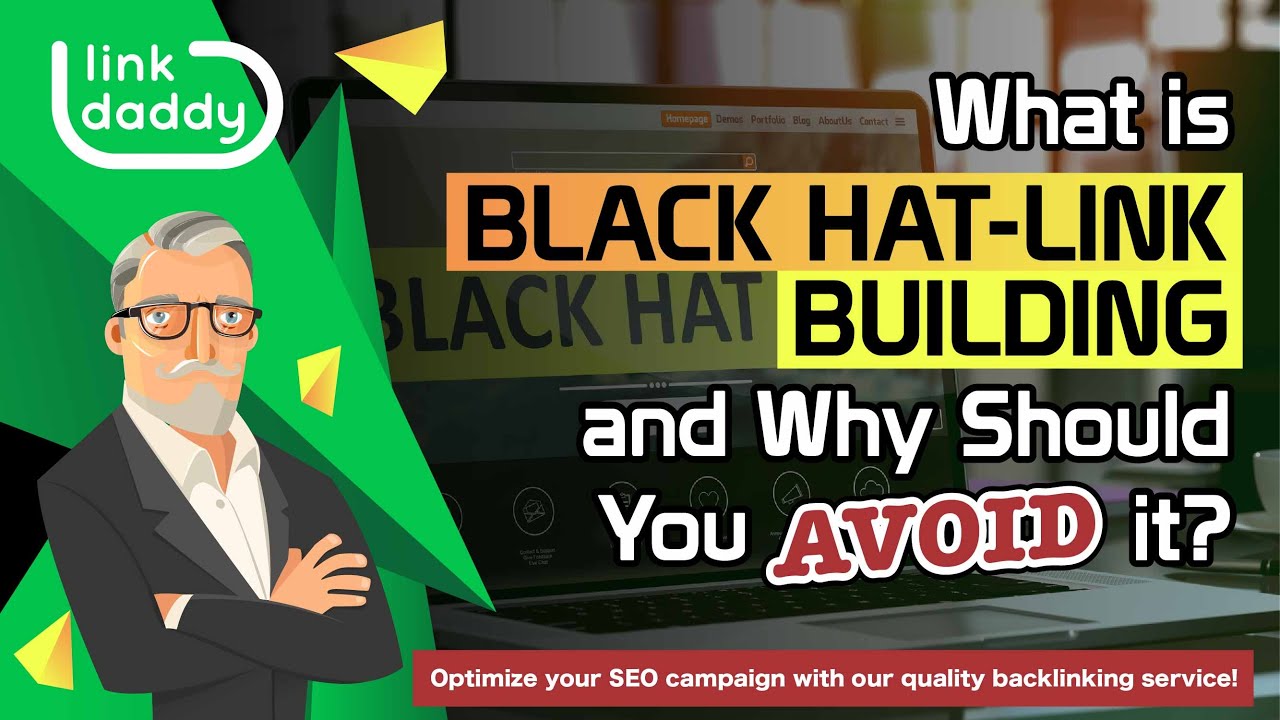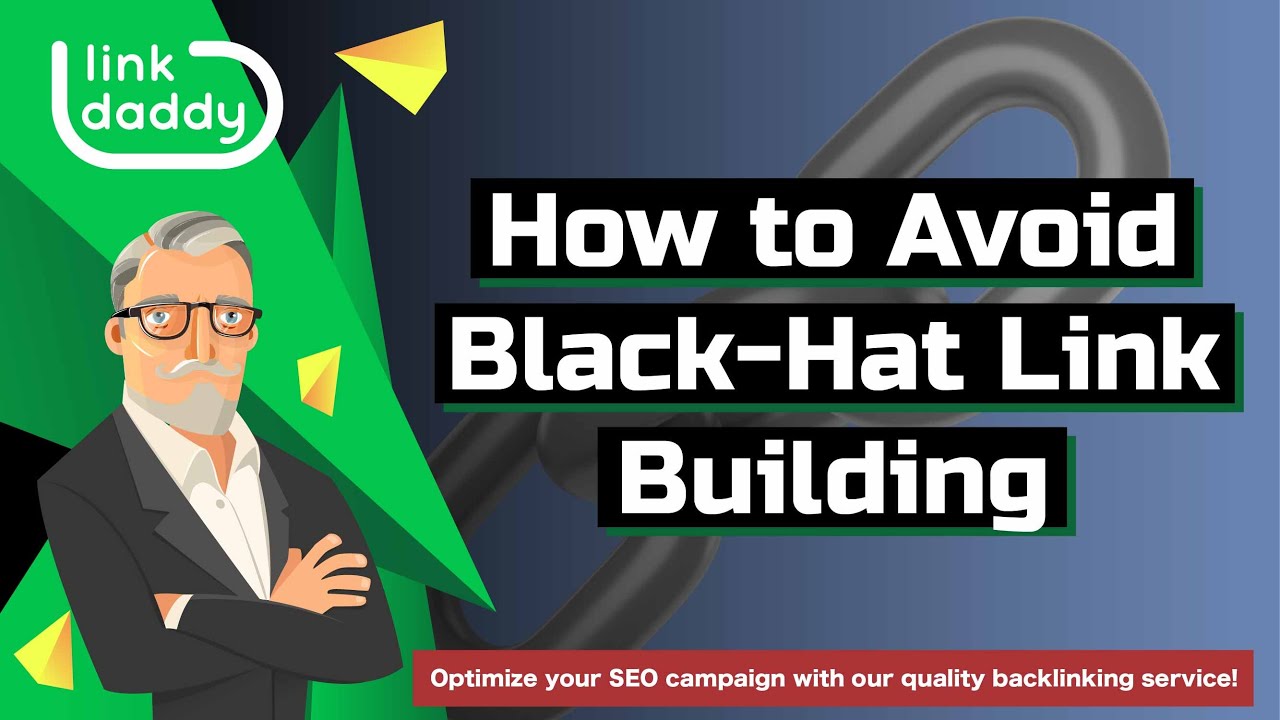In the world of Search Engine Optimization(SEO), there exists a dark and deceptive side known as "black hat link building." While ethical SEOpractices aim to improve search enginerankings through legitimate means, black hat link buildingemploys unethical tactics to manipulate search engines and artificially boost a website's visibility. This article delves into the deceptive techniques used in black hat link building, shedding light on its risks and highlighting the importance of ethical SEOpractices.
What Is Black Hat Link Building?

Black Hat SEO Link Building
Black hat link building refers to the practice of acquiring backlinksfor a website through deceptive and manipulative techniques that violate search engine guidelines. This unethical approach aims to artificially boost a website's link profile and manipulate search engines into ranking it higher in search results.
Black hat link-building tactics often involve spammy and low-quality links from irrelevant or untrustworthy sources, such as link farms, private blog networks (PBNs), and purchased links. While it may yield temporary gains, black hat link building poses significant risks, including search engine penalties, reputation damage, and a decline in user experience. It is important to note that black hat link building goes against the principles of ethical SEO and can have long-term negative consequences for a website's visibility and credibility.
Purpose Of Black Hat Link Building
The primary purpose of black hat link building is to artificially manipulate search engine rankings and improve a website's visibility through deceptive means. Website owners who engage in black hat link building aim to exploit loopholes in search engine algorithms and guidelines to quickly achieve higher rankings and increase organic traffic.
The underlying motivation behind black hat link building is often driven by the desire for immediate results and short-term gains. By employing unethical tactics such as link farms, PBNs, or purchased links, practitioners aim to create an illusion of authority and popularity for their websites.
Black hat link-building techniques disregard the principles of quality content, relevance, and natural link acquisition. Instead, they focus on quantity over quality, attempting to trick search engines into perceiving the website as more authoritative than it truly is.
However, it is important to note that the purpose of black hat link-building contradicts the principles of ethical SEO. It undermines the integrity of search engine algorithms and can result in severe penalties, reputation damage, and a diminished user experience. In the long run, the purpose of black hat link building fails to establish a sustainable online presence and can harm the overall success and credibility of a website.
The Risks Of Black Hat Link Building
Engaging in black hat link-building poses significant risks and potential consequences for websites and their online presence. Here are some of the risks associated with these unethical practices:
- Search Engine Penalties -Search engines, such as Google, have strict guidelines and algorithms designed to detect and penalize websites employing black hat link-building techniques. If a website is caught violating these guidelines, it can face severe penalties, including a drop in rankings or even removal from search engine results pages (SERPs). Recovering from search engine penalties can be a lengthy and challenging process.
- Reputation Damage -Black hat link-building practices can tarnish a website's reputation and credibility. When search engines penalize a website for engaging in unethical tactics, it sends a negative signal to users and potential visitors. The damaged reputation may lead to a loss of trust, diminished brand perception, and reduced user engagement.
- User Experience Decline -Black hat techniques often result in poor user experience. Websites engaged in link spamming, irrelevant backlinks, or low-quality content may frustrate users and fail to provide the value they seek. Negative user experiences can lead to increased bounce rates, reduced user retention, and negative reviews, further damaging the website's reputation.
- Loss of Organic Traffic -As search engines penalize websites employing black hat link-building tactics, the website's organic visibility and traffic can significantly decline. Lower rankings and potential removal from SERPs result in reduced organic traffic, which can have detrimental effects on the website's overall performance, conversions, and revenue.
- Long-Term Consequences -While black hat link building may offer short-term gains, the long-term consequences can be severe. Search engines continue to refine their algorithms, becoming increasingly adept at detecting and penalizing unethical practices. Persistently engaging in Black hat techniques puts the website at risk of ongoing penalties and diminished online visibility, making it difficult to achieve sustainable growth and success.
Black Hat Link Building Techniques You Should Avoid

SEO Mistakes to Avoid | 3 Black Hat Techniques That WILL Get You Banned from Google
Black hat Link Building encompasses various deceptive techniques aimed at artificially inflating a website's link profile. By unmasking these techniques, we can shed light on the unethical practices used in black hat link building. Here are some commonly employed techniques:
- Link Farms and Link Networks -Link farms are networks of websites specifically created to generate backlinks. These websites often have low-quality content and lack relevance to the target site. Link networks involve interconnected websites that exchange links with each other to manipulate search engine rankings. Both practices aim to create the illusion of popularity and authority through a large number of artificial links.
- Private Blog Networks (PBNs) -PBNs are networks of privately-owned websites that exist solely for the purpose of linking back to a target site. These websites are often designed to resemble legitimate blogs, but their primary function is to manipulate search engine rankings. PBNs violate search engine guidelines by artificially creating backlinks and can result in severe penalties if discovered.
- Link Buying and Selling -In this practice, website owners purchase backlinks from high-authority websites or sell backlinks from their own sites to the highest bidder. This transactional approach to link building bypasses the principles of natural link acquisition and attempts to manipulate search engine rankings by paying for links, regardless of the relevance or quality of the linking site.
- Automated Link Spamming -Automated software or bots are used to generate a massive number of low-quality and irrelevant backlinks across various websites, forums, and comment sections. These spammy links are often placed without consent or context, with the sole purpose of manipulating search engine rankings. Automated link spamming violates search engine guidelines and can lead to penalties or even deindexing of the website.
- Hidden or Irrelevant Backlinks -Some black hat practitioners hide backlinks within the code or content of websites, making them invisible to users but accessible to search engine crawlers. These hidden backlinks are often placed in unrelated or irrelevant contexts, attempting to trick search engines into perceiving the website as more authoritative than it actually is.
Why Is It Important To Avoid Black Hat SEO?

What is Black-Hat Link Building and Why Should You Avoid it?
Avoiding Black Hat SEOis crucial for several important reasons:
- Sustainability and Long-Term Success -Black Hat SEO techniques may provide quick, short-term gains in search engine rankings, but they are not sustainable. Search engines continuously update their algorithms to detect and penalize websites that engage in unethical practices. By avoiding Black Hat SEO, you focus on building a strong, sustainable foundation for long-term success.
- Reputation and Trust -Black Hat SEO can severely damage your website's reputation and trustworthiness. Engaging in deceptive tactics undermines the integrity of your brand and can lead to negative perceptions among users, potential customers, and even industry peers. By adhering to ethical SEO practices, you build a trustworthy and credible online presence.
- Search Engine Penalties -Search engines actively penalize websites that employ Black Hat SEO techniques. These penalties can range from a drop in rankings to complete removal from search engine results. Recovering from such penalties can be a time-consuming and challenging process. By avoiding Black Hat SEO, you protect your website from these detrimental consequences.
- User Experience and Engagement -Black Hat SEO often results in poor user experiences. Techniques such as keyword stuffing, hidden text, or irrelevant content can frustrate users and lead to high bounce rates and low engagement. By focusing on providing valuable and relevant content, you enhance the user experience and increase user satisfaction and engagement.
- Ethical Responsibility - As a website owner or SEO practitioner, you have an ethical responsibility to adhere to industry standards and best practices. Black Hat SEO undermines the integrity of the entire SEO industry and creates an unfair playing field. By avoiding Black Hat SEO, you contribute to a healthier and more reputable online ecosystem.
How To Identify And Remove Black Hat Links?

How to Avoid Black-Hat Link Building
Identifying and removing black hat links from your website's backlink profile is an essential step in maintaining a healthy and ethical SEO strategy. Here are some steps to help you identify and remove black hat links:
- Backlink Audit -Conduct a comprehensive backlink audit using reputable SEO tools. This will provide you with a detailed report of all the backlinks pointing to your website. Look for suspicious patterns such as a high number of low-quality or irrelevant links.
- Evaluate Link Quality -Review each backlink individually and assess its quality. Look for signs of black hat link building, such as links from link farms, spammy websites, or irrelevant sources. Pay attention to the anchor text used, as excessive use of exact-match or unrelated keywords can be a red flag.
- Check Link Relevance -Assess the relevance of each backlink to your website's niche or industry. Links from unrelated websites or content that doesn't align with your website's topic may be considered low-quality or black hat.
- Consider Link Velocity:Evaluate the rate at which backlinks were acquired. A sudden influx of a large number of backlinks within a short period can be an indication of black hat tactics. Natural link-building tends to have a more gradual and organic growth pattern.
- Google Search Consoleand Disavow Tool -Utilize Google Search Console to identify any manual actionsor penalties imposed by Google. If you find suspicious links that you cannot remove manually, use the Disavow Tool to signal to Google that you want to disassociate your website from those links. This tool informs Google not to consider those specific links when assessing your website's backlink profile.
- Contact Webmasters -Reach out to webmasters of websites hosting the black hat links and request removal. Be polite and provide clear information about the specific links you want to be removed. Document your outreach efforts for future reference.
- Document and Submit a Disavow File -Keep a record of all the black hat links you were unable to remove manually. Create a disavow file that lists these links and submit it through Google's Disavow Tool. This informs Google that you want to disavow those links and disassociate them from your website.
- Monitor and Repeat -Regularly monitor your backlink profile and assess any new links acquired. Repeat the process of identifying and removing black hat links periodically to ensure your backlink profile remains clean and aligned with ethical SEO practices.
Remember, removing black hat links is an ongoing process, and it's crucial to focus on building high-quality, relevant, and organic backlinks through ethical SEO strategies to maintain a strong online presence.
Embracing Ethical SEO

Why Your Business Needs Ethical SEO
Embracing ethical SEO practices is vital for building a sustainable and reputable online presence. By focusing on these strategies, you can enhance your website's visibility, improve user experience, and establish long-term success. Here are key aspects of ethical SEO to embrace:
- Quality Content Creation-Develop high-quality, valuable, and original content that meets the needs and interests of your target audience. Content should be informative, engaging, and well-structured, providing real value and addressing user intent.
- Relevant Keyword Optimization -Conduct thorough keyword research to identify relevant keywords and phrases that align with your content and user search intent. Optimize your content by incorporating keywords naturally, ensuring they enhance the overall user experience.
- Natural Link Acquisition -Focus on earning backlinks organically through the merit of your content. Create compelling, shareable content that naturally attracts links from reputable and authoritative websites. This includes guest blogging, content outreach, and building relationships with influencersand industry peers.
- User Experience Optimization -Enhance user experience by optimizing website speed, mobile responsiveness, and overall site usability. Improve navigation, readability, and accessibility to ensure visitors can easily find and consume your content.
- Social MediaEngagement -Actively engage with your audience on social media platforms by sharing valuable content, responding to comments, and fostering discussions. Encourage social sharing and natural link-building through social media interactions.
- Transparency and Trust - Build trust and credibility by being transparent about your business, products, and services. Clearly state your expertise, provide accurate information, and maintain open and honest communication with your audience.
- Compliance with Guidelines -Adhere to search engine guidelines, such as Google's Webmaster Guidelines, to ensure your SEO practices align with ethical standards. Avoid engaging in deceptive tactics, keyword stuffing, cloaking, or any other practices that violate guidelines.
- Continuous Learning and Adaptation - Stay updated with the latest trends, algorithms, and best practices in SEO. The digital landscape evolves rapidly, and it's crucial to adapt your strategies to meet changing user behaviors and search engine algorithms.
By embracing ethical SEO practices, you can establish a strong online presence, foster trust with search engines and users, and create a sustainable foundation for long-term success. Remember, ethical SEO prioritizes providing value, relevance, and a positive user experience, benefiting both your website and your target audience.
People Also Ask
Can Black Hat Link Building Provide Quick Results?
Black hat Link Building techniques may yield quick results initially, but search engines are continuously evolving their algorithms to detect and penalize such practices. Long-term success is better achieved through ethical SEO strategies.
How Can I Recover From Black Hat Link Building Penalties?
To recover from Black Hat penalties, identify and remove the offending links, disavow suspicious links through Google's Disavow Tool, and submit a reconsideration request if applicable. Focus on building high-quality, organic links and following ethical SEO practices.
Can My Competitors Harm My Website With Black Hat Link Building?
While it is possible for competitors to engage in negative SEOpractices, such as building low-quality or spammy links to your site, search engines have measures in place to mitigate the impact. Focus on monitoring your backlink profile and disavow any harmful links you come across.
Is It Possible To Rank Well Without Using Black Hat Link Building?
Absolutely! Many websites achieve high rankings and success through ethical SEO practices. By focusing on creating valuable content, earning natural backlinks, and providing a positive user experience, you can build a strong online presence without resorting to Black Hat tactics.
How Can I Protect My Website From Black Hat Link Building Attempts?
Protect your website by regularly monitoring your backlink profile, promptly disavowing any suspicious or low-quality links, and staying informed about current SEO best practices. Prioritize quality content and engage in legitimate link-building strategies to fortify your website's defenses against Black Hat techniques.
Conclusion
Black hat Link Building may promise quick results, but it comes with significant risks and potential consequences. Engaging in unethical SEO practices can lead to search engine penalties, reputation damage, and a decline in user experience. To build a sustainable online presence and achieve long-term success, it is crucial to embrace ethical SEO practices. Remember, the true path to success lies in providing value, rather than resorting to deceptive tactics that undermine the integrity of the SEO industry.